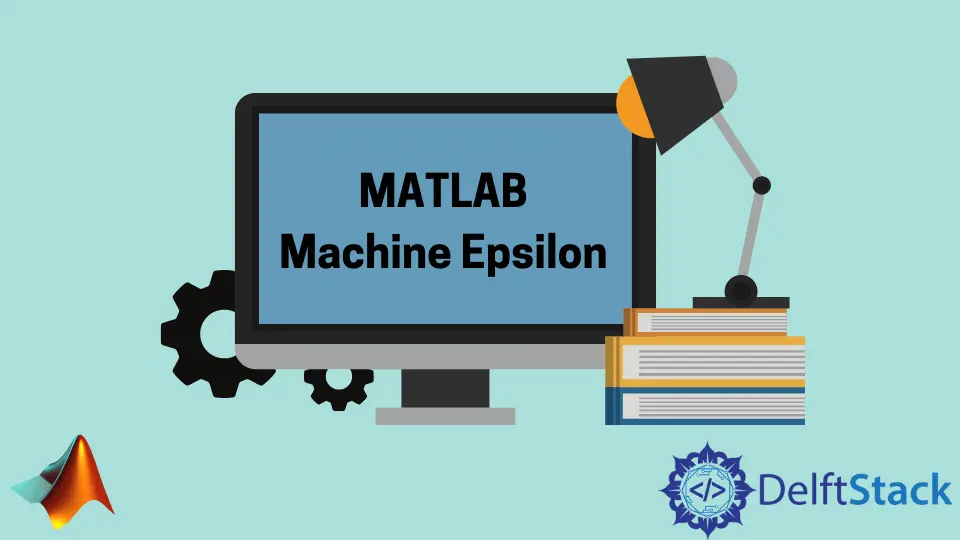MATLAB Machine Epsilon
- What is Machine Epsilon?
- Calculating Machine Epsilon in MATLAB
- Exploring Single Precision Machine Epsilon
- Importance of Machine Epsilon in Numerical Analysis
- Conclusion
- FAQ

In the world of numerical computing, understanding machine epsilon is crucial for ensuring accuracy and precision in calculations. Machine epsilon is the smallest number that, when added to one, results in a value distinguishable from one. This concept is particularly important in MATLAB, where numerical errors can significantly impact your results.
In this tutorial, we will explore how to calculate and interpret machine epsilon using MATLAB. By the end of this article, you will have a solid grasp of machine epsilon, its significance, and how to implement it in your MATLAB projects. Let’s dive into the fascinating world of numerical precision!
What is Machine Epsilon?
Machine epsilon is a measure of the relative accuracy of floating-point arithmetic in a computing environment. It indicates the smallest difference between two floating-point numbers that can be detected. In MATLAB, machine epsilon can vary based on the data type (such as single or double precision) and the underlying hardware. Understanding machine epsilon is vital for developers and researchers who rely on accurate numerical computations.
In MATLAB, you can easily find the machine epsilon using a built-in function. This value helps you understand the limitations of numerical precision and allows you to make informed decisions when designing algorithms or analyzing data.
Calculating Machine Epsilon in MATLAB
To calculate machine epsilon in MATLAB, you can use the eps function. This function returns the machine epsilon for the default data type, which is typically double precision. Here’s how you can do it:
epsilon = eps;
disp(['Machine epsilon: ', num2str(epsilon)]);
Output:
Machine epsilon: 2.2204e-16
In this code snippet, we call the eps function, which computes the machine epsilon for the default floating-point type. The result is then displayed using the disp function. The output shows that the machine epsilon is approximately 2.2204e-16, indicating the smallest difference that can be recognized by MATLAB in double precision.
Understanding this value is crucial for anyone working with numerical algorithms, as it sets a boundary for the precision of calculations. When designing algorithms, it’s essential to account for this limit to avoid errors that can arise from floating-point arithmetic.
Exploring Single Precision Machine Epsilon
MATLAB also supports single precision, which has a different machine epsilon. To calculate the machine epsilon for single precision, you can use the eps function with the single data type. Here’s how:
epsilon_single = eps(single(1));
disp(['Single precision machine epsilon: ', num2str(epsilon_single)]);
Output:
Single precision machine epsilon: 1.1921e-07
This code snippet demonstrates how to compute the machine epsilon for single precision. By casting the number 1 to a single data type, we can accurately find its corresponding machine epsilon. The output shows that the single precision machine epsilon is approximately 1.1921e-07, which is significantly larger than its double precision counterpart.
This difference in machine epsilon highlights the trade-offs between precision and memory usage. Single precision uses less memory, making it suitable for applications where performance is critical and the highest precision is not necessary. Understanding these distinctions is vital for optimizing numerical computations in MATLAB.
Importance of Machine Epsilon in Numerical Analysis
Machine epsilon plays a significant role in numerical analysis, particularly when evaluating the stability of algorithms. When performing operations with floating-point numbers, small errors can accumulate, leading to significant discrepancies in results. By knowing the machine epsilon, you can set thresholds for error tolerances in your algorithms.
For instance, when comparing floating-point numbers, it is essential to consider machine epsilon to determine if two numbers are “close enough” to be considered equal. Rather than checking for exact equality, you can check if the difference between the two numbers is less than machine epsilon.
Here’s how you might implement this in MATLAB:
a = 1.0;
b = 1.0 + eps;
if abs(a - b) < eps
disp('a and b are considered equal.');
else
disp('a and b are not equal.');
end
Output:
a and b are considered equal.
In this example, we compare two floating-point numbers, a and b. Instead of checking for exact equality, we examine whether their difference is smaller than machine epsilon. The output confirms that they are considered equal, demonstrating the practical application of machine epsilon in ensuring numerical stability.
Conclusion
Understanding machine epsilon in MATLAB is essential for anyone working with numerical computations. By knowing how to calculate and interpret machine epsilon, you can design more robust algorithms and avoid pitfalls associated with floating-point arithmetic. Whether you are working with double or single precision, recognizing the limitations of numerical precision will enhance the accuracy of your results. As you continue to explore MATLAB, keep machine epsilon in mind to ensure that your computations are both reliable and precise.
FAQ
-
What is machine epsilon?
Machine epsilon is the smallest number that, when added to one, results in a value distinguishable from one in floating-point arithmetic. -
How do I calculate machine epsilon in MATLAB?
You can calculate machine epsilon in MATLAB using theepsfunction, which returns the machine epsilon for the default data type.
-
What is the difference between single and double precision machine epsilon in MATLAB?
Single precision has a larger machine epsilon compared to double precision, meaning it can introduce more significant errors in calculations. -
Why is machine epsilon important in numerical analysis?
Machine epsilon is crucial for determining error tolerances and ensuring numerical stability in algorithms involving floating-point arithmetic. -
How can I compare floating-point numbers in MATLAB?
Instead of checking for exact equality, you should compare the absolute difference between two numbers to machine epsilon to determine if they are “close enough.”
Sheeraz is a Doctorate fellow in Computer Science at Northwestern Polytechnical University, Xian, China. He has 7 years of Software Development experience in AI, Web, Database, and Desktop technologies. He writes tutorials in Java, PHP, Python, GoLang, R, etc., to help beginners learn the field of Computer Science.
LinkedIn Facebook